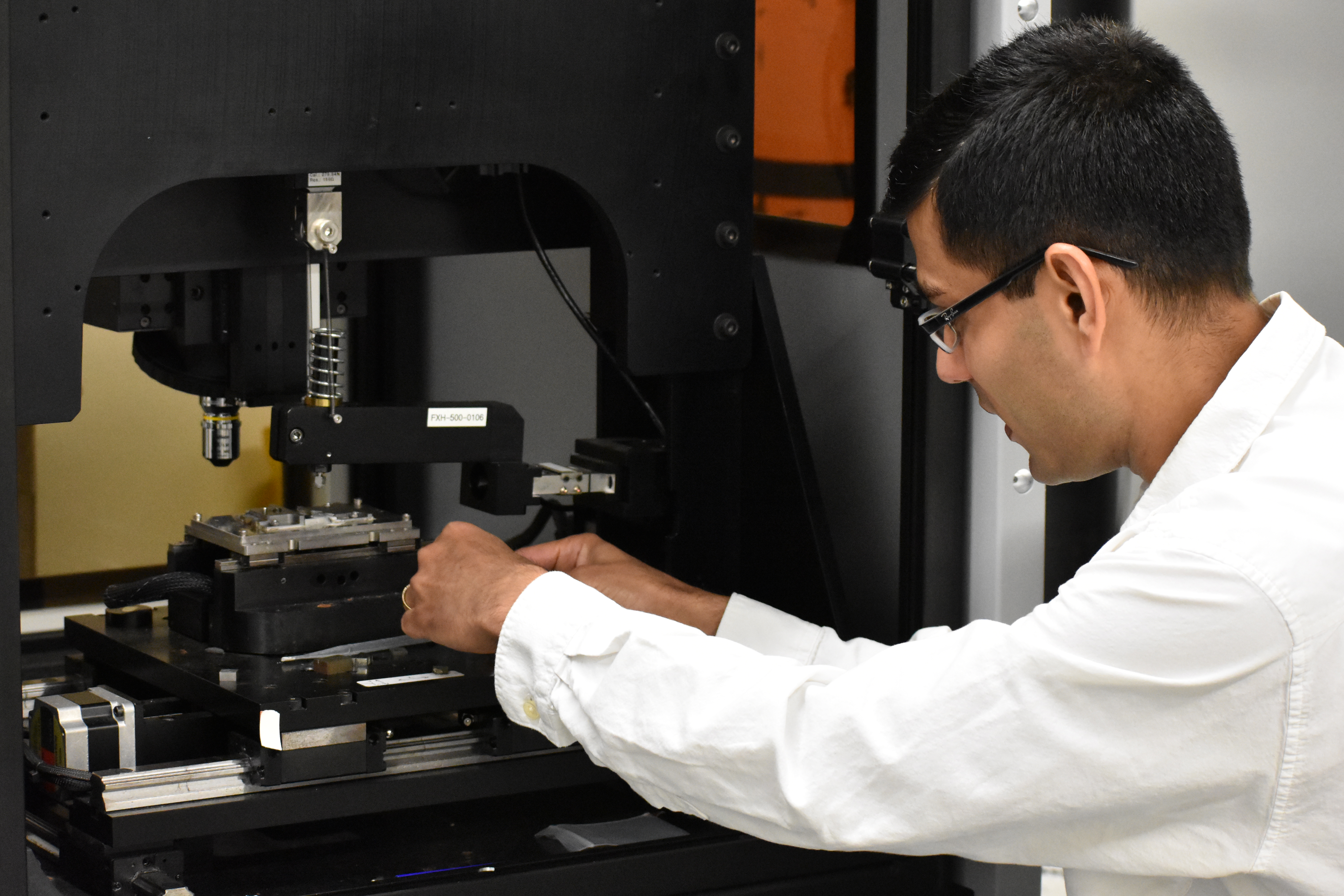
DENTON (UNT), Texas -- As the population age 65 and older in the U.S. – and the world – grows, so does the need for bioimplants, such as artificial knees and hips, dental prosthetics and cardiovascular devices. Implant surgeries can be taxing on older demographics who tend to take longer to recover, and once a bioimplant is inserted, there’s no guarantee it will last. Sundeep Mukherjee, University of North Texas associate professor of materials science and engineering, wants to change that.
“There are a lot of very pertinent issues surrounding bioimplants that need to be remedied,” Mukherjee said. “The body is a fairly aggressive environment, and you don’t want a patient to require implant replacement surgery every five years because the implant is failing.”
In hopes of expanding his current bioimplant research, Mukherjee partnered with a colleague in India – Harpreet Singh, a dean and professor at the prestigious Indian Institute of Technology – to apply for a grant from the Indo-US Science and Technology Forum, a nonprofit society that encourages and funds Indo-U.S. collaborations in science, technology, engineering and biomedical research. Their proposed collaboration was approved and they are forming the Indo-U.S. Joint Center for Development of Durable Advanced Materials for Bioimplants.
“All of us are honored that we’re a part of something so big,” Mukherjee said. “The scope of this problem is huge, and it’s very exciting because we are a materials science department, but many of us work on bioimplant materials. When Harpreet pitched the idea, I jumped on it – not only for the knowledge, but for the prospect of exchanging students. If our students go and visit another country, they get a very unique perspective.”
The two-year grant covers travel for faculty and students between India and the U.S., limited stays in each country and some of the supplies needed to further their research. Mukherjee says they will focus not only on new types of bioimplants, but on improving the quality and longevity of current forms.
“There are a large number of patients with lower income, such as the elderly, and the implant they can afford may be made out of steel – they can’t use the latest and greatest implants,” he said. “There’s a lot of work that can be done to improve those existing materials in terms of surface properties. We want to build the next generation implant, but also want to improve the lower-end materials based on conventional metals that can be targeted towards lower income people.”
Current research at UNT includes testing of new alloys in simulated body fluids, but Mukherjee says the collaboration with biomedical engineers in India will allow for more in-depth assessments.
“Does the material corrode? Does it leech out elements? If it does, are they toxic? These are all things that need to be studied,” he said. “The impact is huge if we build a safe material that’s able to survive in the body for 30 years.”




